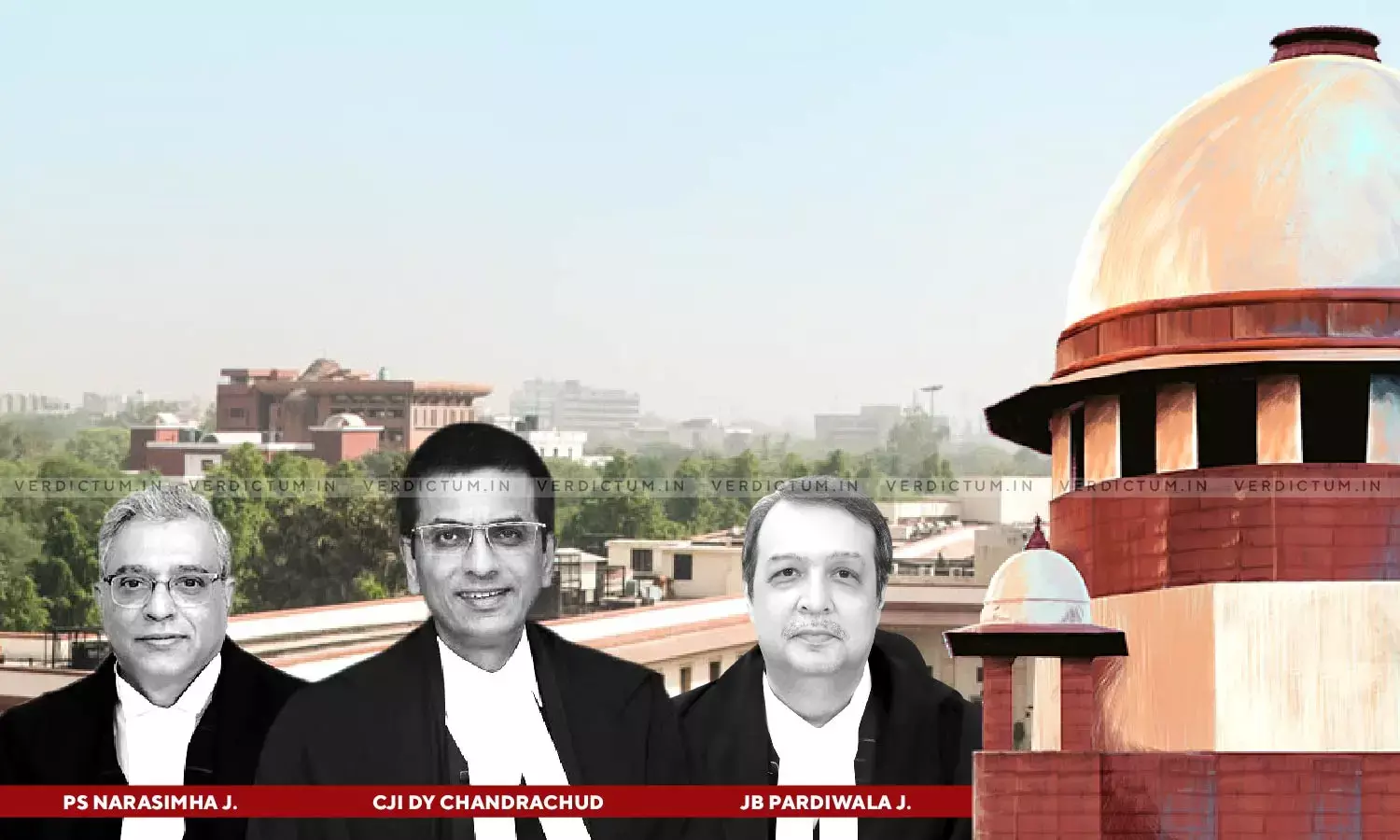Supreme Court Allows Withdrawal Of Plea Challenging Automatic Disqualification Of MP/MLA U/s. 8(3) Of Representation Of People Act
The Supreme Court today allowed the withdrawal of a Public Interest Litigation seeking the removal of the automatic disqualification under Section 8 (3) of the Representation of the People Act, 1951. The Plea had sought that the automatic disqualification be declared as ultra-vires of the Constitution, for being arbitrary and illegal.
The bench of Chief Justice DY Chandrachud, Justice PS Narasimha and Justice J.B. Pardiwala at the right outset expressed their disclination in entertaining the matter and asked the petitioner to either withdraw it or that the Court will dismiss it. The CJI observed, "Who are you to challenge Section 8(3) of the Representatives of the People Act, let the person who is aggrieved by the disqualification come here".
Continuing, the CJI added, "You withdraw it or we dismiss it". Accordingly, the Counsel appearing for the Petitioner withdrew the matter.
The PIL was filed under Article 32 by Aabha Muralidharan, a PhD. scholar and a social activist challenging the automatic disqualification of elected legislative bodies representatives upon being convicted of any offence and sentenced to imprisonment for not less than two years under Section 8 (3) of the Representatives of the People Act, 1951.
The petitioner stated that such disqualification restrains the members from freely discharging their duties cast upon them by the voters of their respective constituency, which is against the principles of democracy and that the term used under Section 8(3) of the RPA, 1951 does not include the words “shall stand” or “forthwith”, thus, in the absence of the same, there can not be an automatic disqualification.
Muralidharan had further that the immediate reason for approaching this Court is the recent development related to Mr. Rahul Gandhi's disqualification, who has been disqualified as a Member of Lok Sabha representing Wayanad Constituency, Kerala from the date of his conviction. "That the said conviction has been challenged, however, in light of the operations of the present disqualification rules, as per the 1951 Act, the stage of appeal, the nature of offences, the gravity of the offences and the impact of the same over the society and Nation are not being considered, and in a blanket manner, an automatic disqualification is ordered." reads the petition.
The petitioner also sought direction from the Court that the offence of criminal defamation must be excepted from the sweep of the judgement in Lily Thomas and if the offence under Section 499 and 500 of the IPC, which just technically has a maximum punishment of 2 years, is not removed then it will have a chilling effect on the right of representation of the citizens.
Further, it was submitted in the petition that the judgement of Lily Thomas vs. Union of India (2013) 7 SCC 653 of the Apex Court requires re-examination as is being blatantly misused for wreaking personal vengeance in political parties and that the Members of Parliament are the voice of the people. "It is the right of freedom of speech and expression of millions of supporters who have elected the member in that constituency and voters who have voted for the political party in general which is exercised by the Member of the Parliament." submits the Petitioner.
"That the present scenario provides a blanket disqualification, irrespective of the nature, gravity, and seriousness of the offences, allegedly against the concerned Member, and provides for an “automatic” disqualification, which is against the principles of Natural Justices, since various convictions are reversed at the appellate stage, and under such circumstances, the valuable time of a member, who is discharging his duties towards the public at large, shall be rendered futile." reads the petition.
The Petition had been filed through Advocate-on-Record Deepak Prakash.
Cause Title: Aabha Muralidharan v. Union Of India & Ors. [W.P.(C) No. 481/2023]












